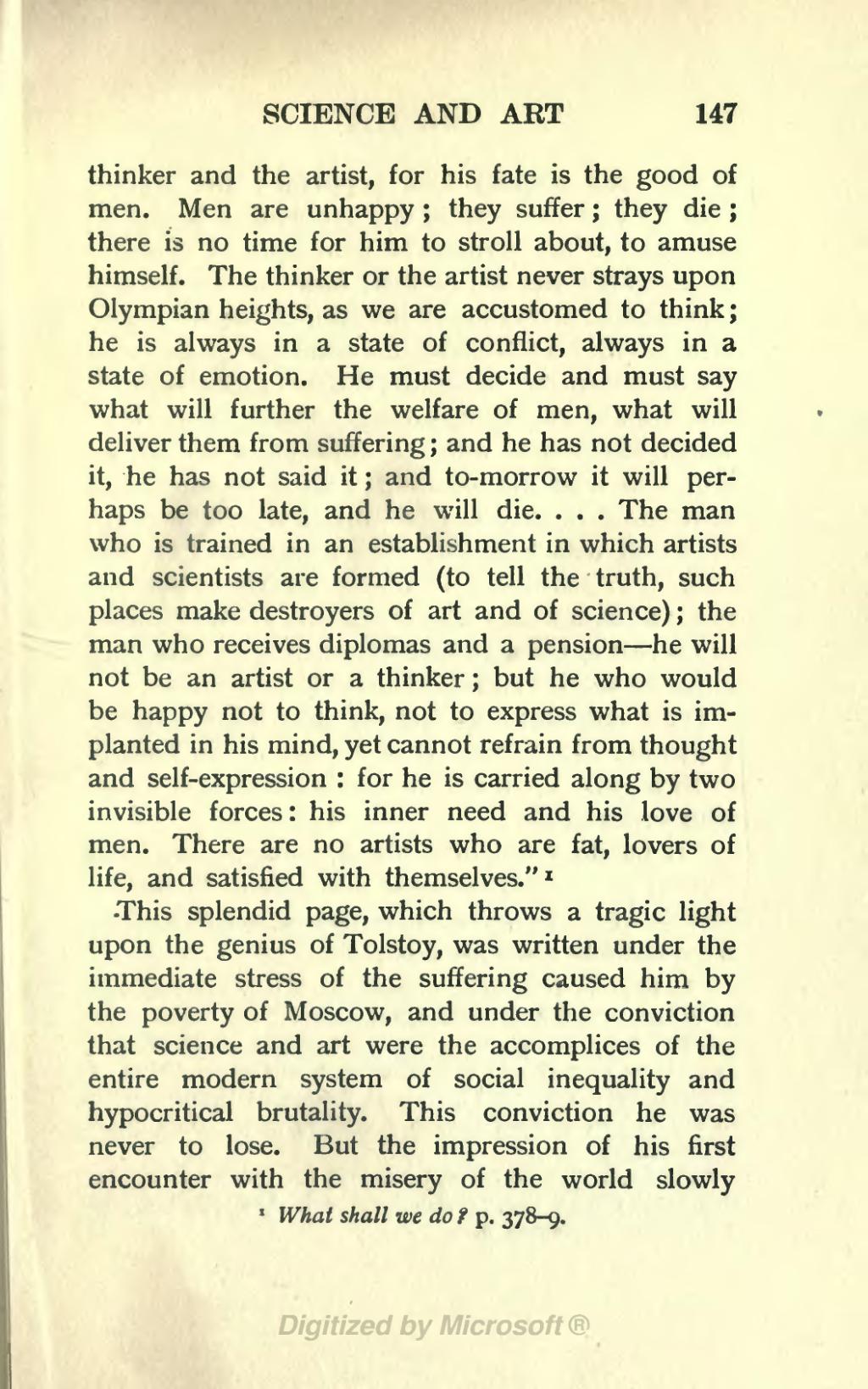thinker and the artist, for his fate is the good of men. Men are unhappy; they suffer; they die; there is no time for him to stroll about, to amuse himself. The thinker or the artist never strays upon Olympian heights, as we are accustomed to think; he is always in a state of conflict, always in a state of emotion. He must decide and must say what will further the welfare of men, what will deliver them from suffering; and he has not decided it, he has not said it; and to-morrow it will perhaps be too late, and he will die… The man who is trained in an establishment in which artists and scientists are formed (to tell the truth, such places make destroyers of art and of science); the man who receives diplomas and a pension—he will not be an artist or a thinker; but he who would be happy not to think, not to express what is implanted in his mind, yet cannot refrain from thought and self-expression: for he is carried along by two invisible forces: his inner need and his love of men. There are no artists who are fat, lovers of life, and satisfied with themselves.”[1]
This splendid page, which throws a tragic light upon the genius of Tolstoy, was written under the immediate stress of the suffering caused him by the poverty of Moscow, and under the conviction that science and art were the accomplices of the entire modern system of social inequality and hypocritical brutality. This conviction he was never to lose. But the impression of his first encounter with the misery of the world slowly
- ↑ What shall we do? p. 378-9.
